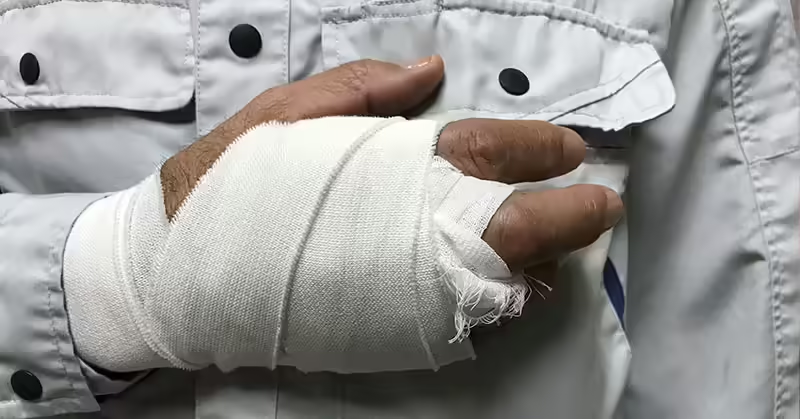What To Do If You Have Work-Related Injuries
July 10, 2020

Almost all work-related injuries can be prevented. Work-related injuries happen every day. Unfortunately, workers in all industries and occupations are exposed to some degree of injury risk. That risk varies based on the industry and occupation of the worker.
Each year, workplace risks leave millions of workers unable to do their jobs on a short or long-term basis.
According to the National Safety Council, in the United States, a worker is injured on the job every seven seconds. That means there are:
- 540 work injuries per hour
- 12,900 work injuries per day
- 90,400 work injuries per week
- 7 million work injuries per year
The NSC reports:
[T]hese injuries result in 99 million days of lost productivity on an annual basis. This means that, on average, each work injury results in 21 days of disability. As an average, this means that some workers are able to return to work fairly quickly (if they even miss any time at all); but, it also means that many workers experience long-term disabling effects from their job-related injuries).It is also important to note that these workplace injury statistics only reflect known work injuries. Far too many workers never report their accidents, and they never receive the medical treatment or financial benefits they need to recover.
What Should You Do If You Are Injured at Work?
- Report the injury to your employer, supervisor, and the safety man in charge of the facility where you are working in writing—a text is fine (save the message where you reported the injury). Failing to report your injury has two major consequences (along with others):
- Many states require that you report workplace injuries within a specific timeframe in order to be eligible for workers’ compensation. By not immediately reporting a workplace injury, you may lose your eligibility for workers’ compensation.
- Your employer (and their insurance company) may deny that the incident occurred and may claim that it happened somewhere else.
- If you were injured by a broken or faulty piece of equipment, take photos of it and the area where you were injured.
- If you are wearing Personal Protection Equipment (PPE) and it is damaged, take photos of the equipment.
- Take photos of your injuries.
- If anyone witnessed your injury, get their names, phone numbers, and emails.
- Get an attorney as soon as possible.
Am I Entitled to Compensation?
Whether or not you are entitled to compensation depends on a variety of factors. If you are injured by the negligence of your employer alone and your employer has Workers’ Compensation insurance, your compensation is usually limited to a percentage of your wages until you reach maximum medical improvement. Call one of our top-rated workplace injury attorneys to discuss your options. If your employer does not have Workers’ Compensation insurance or if someone other than your employer negligently caused you to become injured at work, you may be entitled to compensation for the following types of damages:
- Past and future medical expenses;
- Past and future pain and suffering;
- Past and future disfigurement;
- Past and future impairment;
- Lost wages in the past;
- Loss of earning capacity in the future; and,
- Loss of consortium.
Our experienced work injury lawyers at Morrow & Sheppard LLP can help you seek maximum compensation for your serious injury at work, call 800-489-2216 or contact us online today.
Daniel Sheppard is licensed to practice personal injury law in Texas and Louisiana. Daniel takes pride in providing exceptional service to clients who were seriously hurt on the job and brings his relentless work ethic into the office and the courtroom. Learn more about Daniel.
- Home
- |
- Workplace Accidents
- |
- What To Do If You...
















































